
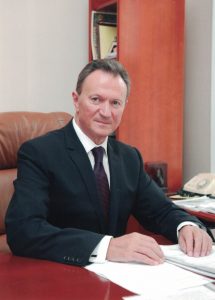
The COVID-19 pandemic has created new economic conditions in which survival of businesses, institutions and entire industries depend on the ability to adapt to these conditions. Those who are already working online or ready for digital transformation will suffer the least damage. Not only challenges but also opportunities lie in this. In the times of the crisis, the long-awaited digitization has affected even the conservative health care and education systems of Ukraine. We are discussing the new points of growth, treatment and training during the quarantine, the medical reform and the chances in Ukrainian medical science with the Chairman of the Academic Council of Odessa National Medical University, the honorary doctor of 19 foreign universities and associations Academician Valerii Zaporozhan.
Has quarantine become a problem for Odessa Medical University?
Rather, a challenge. In previous years, we managed to create a sound IT infrastructure, so transferring students to distance learning did not cause any difficulties. This is a bit unusual for everyone, but it did not cause much harm to the educational process. Students “attend” online lectures and workshops, prepare for the OSCE (Objective Structured Clinical Exam. – Ed.) watching video tutorials on our youtube channel. We have been working on online learning for quite some time now and are ready for this turn. As for the university clinics, they, in accordance with the resolution of the Cabinet of Ministers, have suspended the outpatient admission and were put into full readiness mode. They were not included in the clinical database for the admission of patients with COVID-19. But if the situation gets out of hand and we get the appropriate instruction from the Ministry of Health, we will be fully armed.
As for the employees, I can assure that nobody will lose their job, this is a fundamental question for me. We pay salaries in full, there will be no cuts. There is much talking about responsibility now. People are responsible for their health, employers – for their employees. Thousands of people work at the Medical University of Odessa, we have no right to let them down. Even in the difficult 1990s, when scientists, educators, and engineers were forced to trade at markets, we retained staff and salaries. So the quarantine is not the first test that, I am sure, our team will pass in full force.
Do you personally know the new minister Maxim Stepanov?
Yes, he worked at Odessa Regional State Administration for a long time. We saw each other about the issues related to the university and clinics.
What can you say about him?
That he, like his predecessor (Ilya Yemets – Ed.), headed the ministry at the most difficult time for health care. Every Ukrainian is personally interested in his coping with it.
The minister has not presented his vision of the medical reform publicly yet . He only said that this is the second priority after the coronavirus. Do you know his position?
Even if so, it would be wrong for me to speak for him. From his public appearances in the media, I remembered mandatory health insurance. It is encouraging. Whether we want it or not, the world is moving toward commercialization. Therefore, health care in Ukraine will sooner or later come to insurance medicine. It has been talked about since President Yushchenko’s times, and no one has suggested anything better. The only problem is that the conversation did not go further, and instead of insurance medicine we have what we have.
Since this year, the principle of financing universities is changing in Ukraine. Now it will not depend only on the number of government-subsidized students, but on the quality of training as well. How do you feel about it?
Positively. You know, the pandemic has shown that Ukrainians cannot afford to live on one paycheck – it may not be available at any time. And public institutions cannot and should not live off the state. It must, of course, assist, fund, first and foremost, scientific development, but not withhold. The correlation between funding and the quality of educational services will stimulate universities to become better, expand international partnerships, fight for grants and invest in training. There are a lot of higher educational institutions in our country, competition between them should be encouraged. For Odessa Medical University, the innovations were neither a shock nor a challenge. Because everything we do has always been focused on the quality training. Sufficient material and technical base has been created. Competent approach has been put at the forefront of the training.
4 years ago, as a rector, I created the Center for Quality Control of Education. It is equipped with a room for 300 computers, where any student can prepare for KROK exams: pass tests, test their knowledge, pull up their “tails”. The second function of the center is the automatic admission or non-admission to the examination session. The student passes the test, and the system, which is indifferent to who is sitting in front of it, scores.
Another aspect is the responsibility of the university to the students. When entering the medical profession, they must be sure that they will have the necessary skills, will be proficient and in demand. Therefore, in addition to estimates, employment is an important indicator. We have always worked in this direction. We maintain relationships with health departments in all regions, monitor the market, conduct job fairs. Even before the pandemic, there was an idea to develop a graduate registry. But the coronavirus has paused lots of things.
You said that you have been working on online training for a long time. What was the goal you set for yourself, given that no one could think of a pandemic then?
We have wanted for 5 years to “pack” all the educational content of all departments online. The student is ill, asks a friend to rewrite the notes. You know that the notes can sometimes be not so good. Instead of copying, he can watch the video of the lecture himself. Plus, it’s a great option for an academic vacation.
In addition, we have been operating an online library for several years. All study materials are available in different languages, including English. Our library is part of a global network of tutorials for students at Yale, Stanford, and dozens of others. Now on the basis of the library we are developing a distance course of postgraduate study online so that doctors from all over Ukraine can listen to lectures, take exams and get their certificate. The same approach will be applied in the long run to extra-mural students. I think this is a very relevant and competitive approach to education.
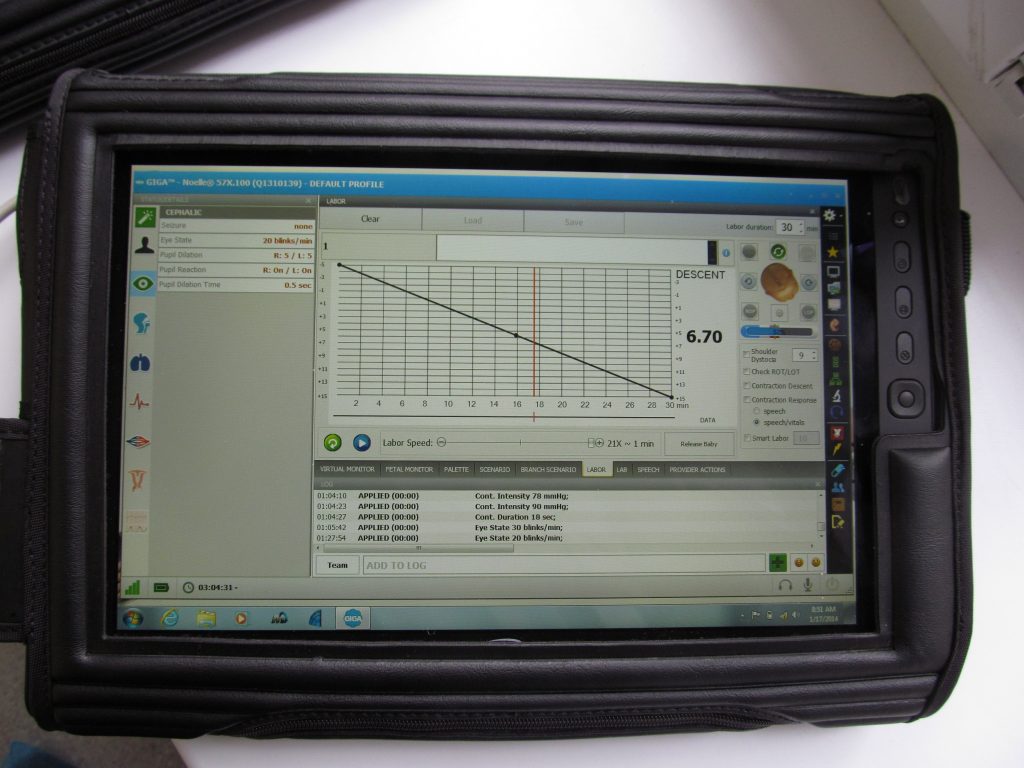
I like the concept of the state in a smartphone. Technology is always about efficiency and transparency. We want to audit and implement the big project “Electronic University”: to digitize jobs, introduce a clear and measurable KPI for each teacher, vice-rector and rector, to consolidate training materials in a single database.
Another idea is to gradually translate our “paper” scientific journals into electronic English language editions. Since 1997, there has been a publishing house operating at the university, and we have produced over 500 textbooks and books. This is important, but for the advancement of science, for raising citation indexes, the prestige of Ukrainian medicine it needs to be digitized.
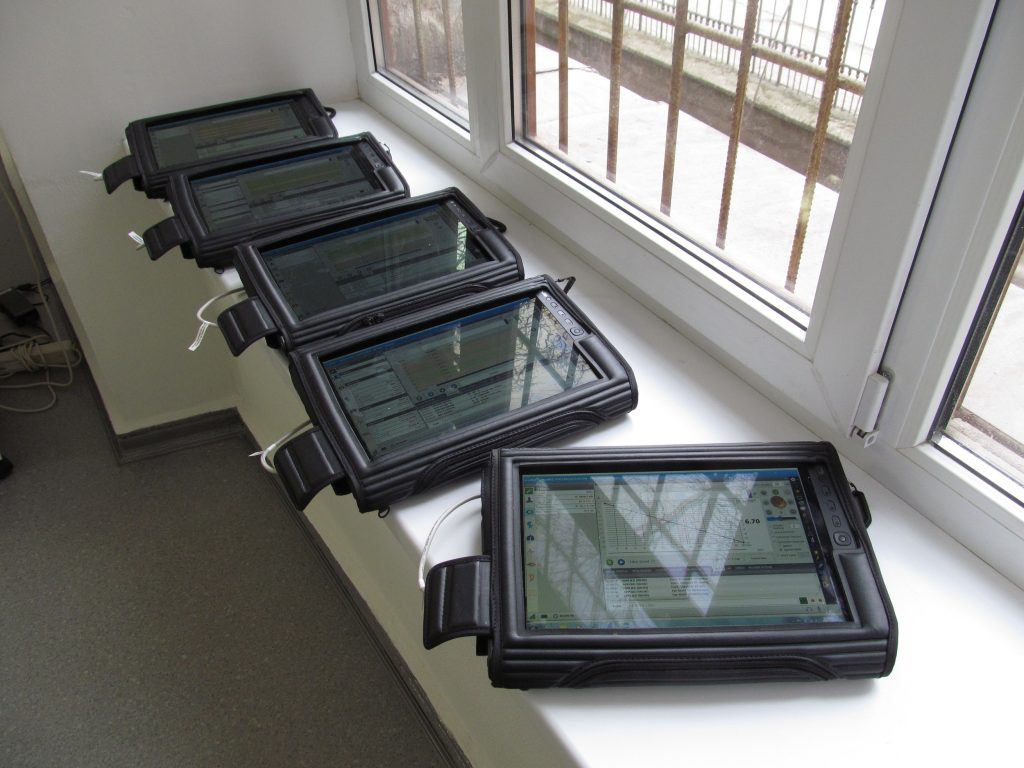
Don’t you think that in the conditions of chronic under-financing in the next few years Ukrainian science will disappear as a phenomenon?
The situation is very complicated, but I am against the categoricalness. Science is a completely unprofitable industry. In any country in the world, it is costly and unprofitable: conditionally one study out of thousands will produce results. Therefore, science cannot exist without grants, and unfortunately our scientists do not have access to them. For example, “Horizon 2020”. No matter how many applications we make, it is half a year of work, the result is zero. Grants are given to Europe they trust. Ukrainians can only be co-executors of the grant. We are trying to overcome this situation and have created the Institute of Translational Medicine. Why this name? In other words, from the desk of the researcher – to the bed of the patient. The trend has gained popularity in the last decade. The bottom line is that scientists are engaged in the most practical research that will lead to a qualitative improvement in diagnosis and treatment, prevention, monitoring and more.
Is your university ready for such research?
Some examples. We will be able to determine the sensitivity to chemotherapy. Such patients do not have the time or money to experiment, need a quick and accurate solution. We can determine the predisposition to cancer and metabolic syndrome. It is a condition that includes a huge number of symptoms: obesity, hormonal disorders and others. With our equipment, we can predict the development of this syndrome at a very early stage. There is great promise in the early diagnosis of any form of cancer. We work with two Italian universities, there are no analogues to their studies in Ukraine. It’s about predicting the risk of developing cancer by so-called exosomes. These are particles that are released into the intracellular space by cells that have just begun oncotransformation. We have trained people, the entire legal unit and the platform for joint research in this area.
There are many obstetric pathologies that we can investigate and diagnose at early stages. Our university looks very good, we have all the facilities and modern equipment to run these projects.
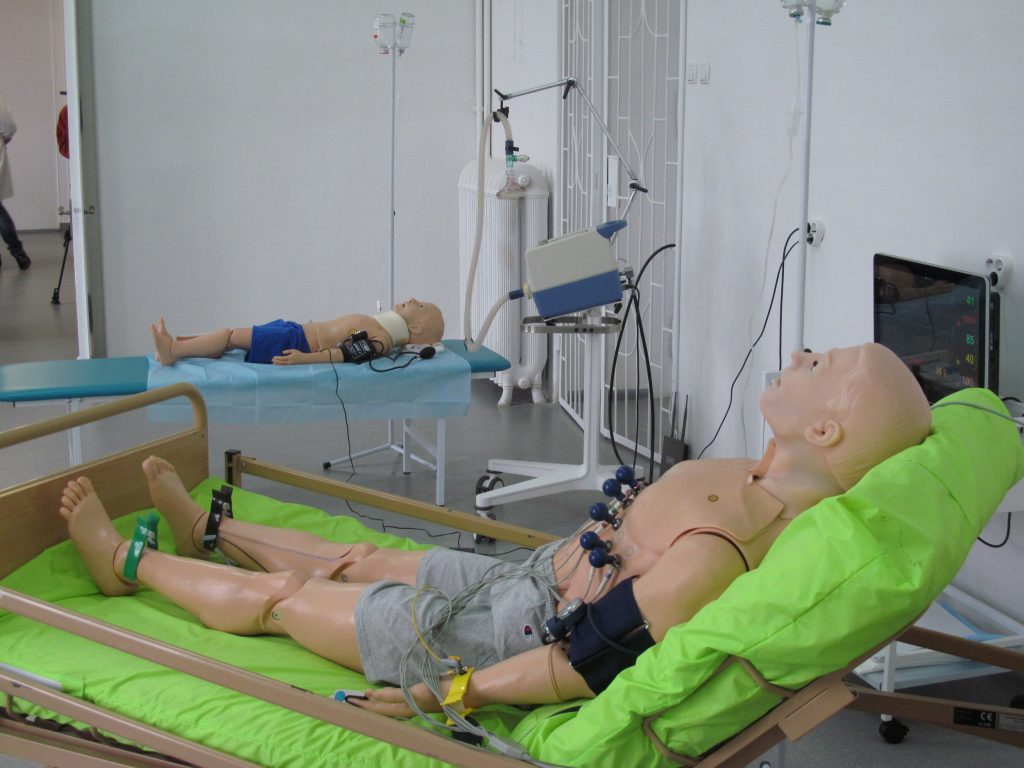
You often mention the equipment. You have been criticized for unnecessary costs, that simulators are not affordable for a public university.
Public funding is one third of the university budget. We provide quality educational services and make money from it. We teach students from more than 50 countries, the first in Ukraine to switch to English. We bought this equipment and will buy it in the future, because, first, it is necessary. Secondly, we cannot afford to train students on mid-century machines. We once had the Accounting Chamber and they asked why we had all this if the district hospitals had 1960s equipment. There is no logic in this matter.
At our University Clinic in Tenistaia Street, virtually all study rooms have an operating room connection. The camera covers the operating field, the surgeon comments on all his actions. That’s how we work. Recently we had a professor from Israel, director of the Medical Center for Gynecology and Obstetrics and Emergency at Tel Aviv University and director of the Center for Simulation Technologies at the same university. He confirmed that our simulation classes and professional level of specialists are not inferior to the world ones. This is the basis of competence training, which allows our students not only to know the subject, but also to develop practical skills, to be able to apply them in the treatment of patients.
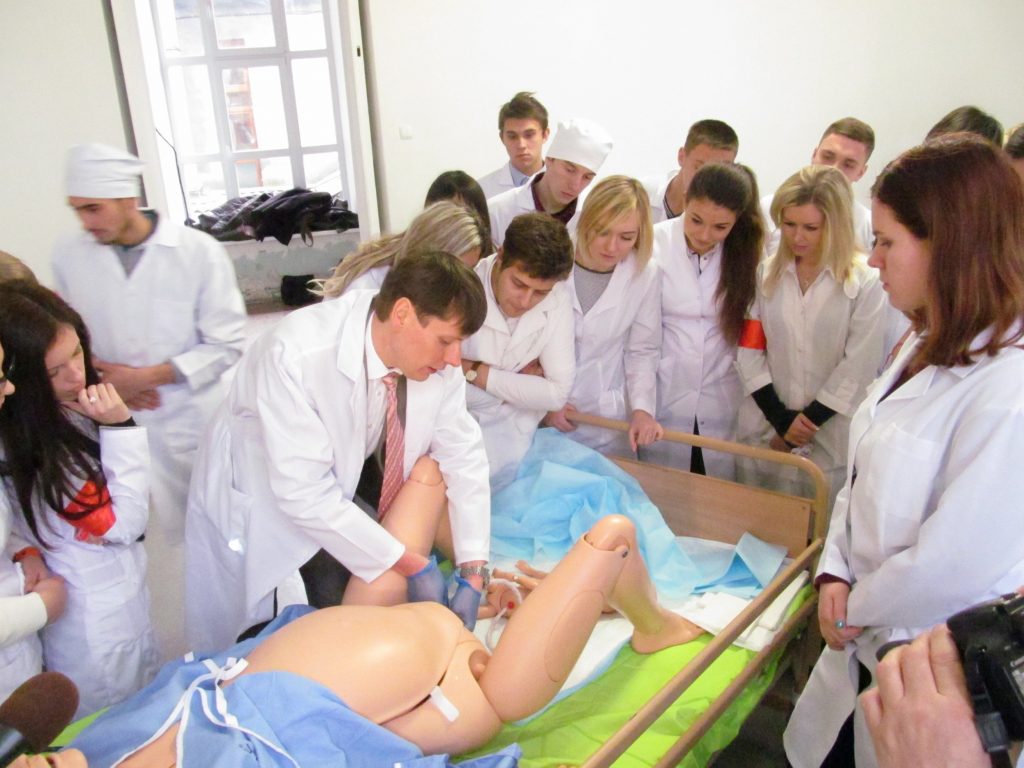
What is simulation equipment and how is it used in the educational process?
These are robotic dummies that completely replicate human anatomy and physiology. In the world, no one will let a graduate to a patient until he / she has proven his / her practical skills in automatism with the help of a simulator. Students study the structure of organs on them, learn how to perform operations, do ultrasound, etc. The simulator itself evaluates the actions of the student, not the teacher. With the help of such simulators, they also take state exams. This system has been operating in the world for a long time, but in Ukraine we started with a clinically oriented exam without having formed a competent approach to learning.
How is the exam held? There is no teacher, no commission, no students trembling with fear. There are several offices, so-called stations, equipped with a laptop, dummies, a simulator and all the necessary tools. In each office there is a task, for each student – 5 minutes. The student is given a number and no names are given – full anonymity. For each task, the student receives a certain number of points, then they are summed up and completely objectively evaluate the knowledge and skills, eliminate corruption risks and subjectivity of a teacher. Psychologists have analyzed the results and condition of the students and concluded that they are less stressed and better able to cope with the tasks.
By the way, another of our innovations is the station “Communication skills”. Since this year, we are starting to pay more attention to the doctor’s communication with the patient. This area in our country is in vain underestimated, because mutual trust depends on communication and the collection of information for diagnosis and treatment.

Has the Coronavirus pandemic affected the university’s international work?
The whole world is on pause and we are no exception. In order to attract foreign specialists, to give students access to world experience and knowledge, in the 1990s we created the so-called Institute of Honorary Doctors. Today we have about 20. It is a great pride that such people give lectures to our students. Among them there has been the prominent Christian Barnard, the author of the world’s first heart transplant. Wolfgang Holzcregon, the author of Prenatal Screening – Early Detection of Fetal Pathologies. There is a preliminary arrangement with a molecular biologist at the University of Virginia Natalie Coleman, who can become a scientific supervisor at our university. She specializes in cell technology in the early diagnosis and treatment of malignancies. There are very few specialists of this level in the world. But the coronavirus has intervened in our plans. This work will continue as soon as the world copes with the pandemic.
Do you have any idea when this might happen?
Nobody knows this. Even WHO has been urged not to expect that the virus will cease to spread in the summer. Therefore, all we have to do is to remain vigilant, take care of our loved ones and learn lessons. Let me remind you that in the early twentieth century, the Spanish flu, which seemed to be an insurmountable disaster, gave the most powerful impetus to the development of health systems, which in the future became the leading in the world. Therefore, following the new pandemic, the development of medical technology will follow, and it is encouraging.